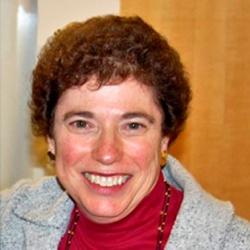Faculty Directory
| Department Chair: Jonathan Fortney | Department Manager: Alyssa Danielli |
| Vice Chair: Brant Robertson | Graduate Advisor: Brandon Day |
| Graduate Program Director: Andrew Skemer | Department Assistant: Kali Lucas |
| Undergraduate Program Director: Connie Rockosi | Astronomy Program Coordinator: Lani Skelton |

- Title
- Director Emerita, UC Observatories
- Professor Emerita, Astronomy and Astrophysics
- Division Physical & Biological Sciences Division
- Department
- UC Observatories
- Astronomy & Astrophysics Department
- Phone 510-717-1930
- Fax 831-459-5244
- Website
- Office Location
- Center for Adaptive Optics, 111
- Mail Stop UCO / Lick Observatory
- Faculty Areas of Expertise Astronomy, Astrophysics
Research Interests
Prof. Max's research interests are focused in two areas: the design and implementation of new adaptive optics systems, and using these new systems to study black holes in the cores of nearby galaxies.
Adaptive Optics: This new technology removes blurring of astronomical images caused by turbulence in the earth's atmosphere, allowing ground-based telescopes to see almost as clearly as if they were in space. Prof. Max's group was a major contributor to the adaptive optics (AO) system at the 10-meter Keck Telescope in Hawaii in the late 1990s. She is now Project Scientist for the Next Generation AO System being developed for the Keck Observatory.
Black holes in the cores of nearby galaxies: Prof. Max and her group use the superb spatial resolution of adaptive optics to study the immediate environments of active galactic nuclei hosting accreting supermassive black holes. The images below show one of these objects, called NGC 6240, which consists of a pair of spiral galaxies in the midst of a collision with each other. This object is of interest because each of the two galaxies contains its own black hole, which will eventually spiral in to be very close to each other and perhaps eventually merge together. Currently Max's group is using adaptive optics to measure the masses of the two black holes in NGC 6240 and in other nearby colliding-galaxy pairs, and to image more distant galaxies that are candidates for containing two active supermassive black holes.
Biography, Education and Training
AB Harvard University, Astronomy 1968
PhD Princeton University, Astrophysical Sciences 1972
Postdoc, UC Berkeley, Physics 1972-74
Physicist, Lawrence Livermore National Laboratory 1974-2000
Astronomer/Professor, UC Santa Cruz 2001-present
American Academy of Arts and Sciences, 2002
Director, Center for Adaptive Optics, UC Santa Cruz 2004-present
Ernest O. Lawrence Award for Physics, Department of Energy, 2004
National Academy of Sciences 2008
James Madison Medal, Princeton University 2009
